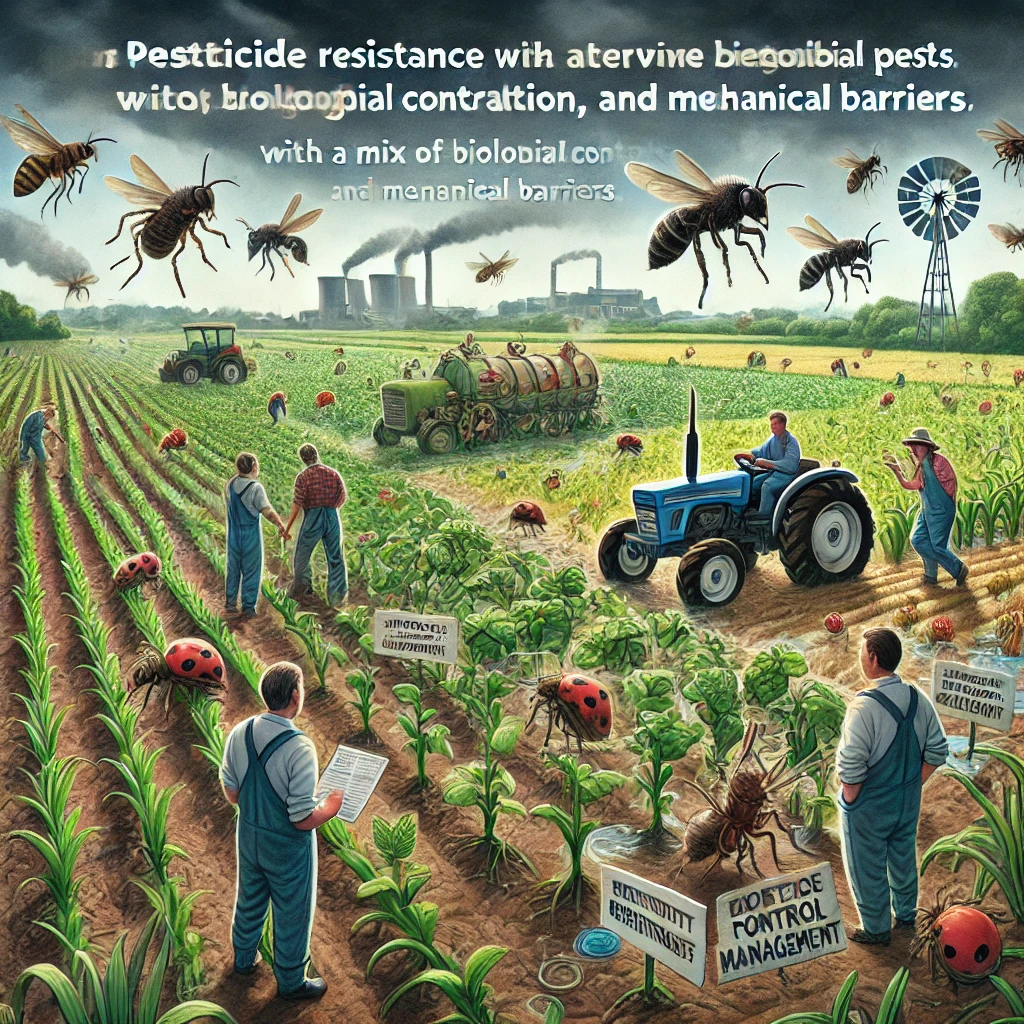
Introduction to Pesticide Resistance
Pesticide resistance is a growing challenge in the field of pest management, significantly impacting the effectiveness of pest control strategies worldwide. Resistance occurs when pests, such as insects, rodents, or weeds, develop the ability to survive exposure to chemicals that were once effective at controlling them. This resistance is often the result of genetic mutations and natural selection, where the most resistant individuals survive and pass their traits to the next generation. As a result, pesticide resistance can lead to increased pest populations, crop damage, and economic losses, necessitating the development of new strategies for effective pest control.
Causes and Development of Pesticide Resistance
The development of pesticide resistance is primarily driven by the overuse and misuse of chemical pesticides. When pesticides are applied frequently and at high doses, they exert strong selective pressure on pest populations, accelerating the evolution of resistance. Additionally, the use of broad-spectrum pesticides, which target multiple pest species, can inadvertently promote resistance across a wide range of pests. Poor pest management practices, such as failing to rotate pesticides with different modes of action, can also contribute to the rapid development of resistance, making it harder to control pest populations over time.
Impact on Agricultural Practices and Pest Control
Pesticide resistance poses significant challenges for agricultural practices and pest control strategies. As pests become resistant to commonly used pesticides, farmers may need to apply higher doses or more frequent applications, increasing the cost and environmental impact of pest control. Resistance can also render some pesticides completely ineffective, forcing farmers to rely on a smaller arsenal of chemical options. This not only increases the risk of further resistance but also puts more pressure on the development of new pesticides, which can be costly and time-consuming. Consequently, pesticide resistance can undermine the sustainability of agricultural production and threaten food security.
Alternative Pest Management Strategies
To combat pesticide resistance, alternative pest management strategies are essential. Integrated Pest Management (IPM) is a holistic approach that combines multiple methods to control pests while minimizing reliance on chemical pesticides. IPM strategies include biological control, such as introducing natural predators or parasites, cultural practices like crop rotation and intercropping, and mechanical controls like traps and barriers. By reducing the selective pressure exerted by chemical pesticides, IPM can help slow the development of resistance and promote long-term pest management sustainability.
Future Directions in Combating Pesticide Resistance
The future of combating pesticide resistance lies in continued research and innovation. Developing new pesticides with unique modes of action can help manage resistant pest populations, but this must be coupled with strategies to prevent resistance from developing in the first place. Advances in genetic research and biotechnology offer promising avenues, such as the development of pest-resistant crop varieties and the use of RNA interference (RNAi) technology to target specific pest genes. Additionally, digital tools and data analytics can enhance pest monitoring and early detection, allowing for more targeted and timely interventions. By integrating these approaches, the agricultural sector can effectively address the challenges posed by pesticide resistance.
